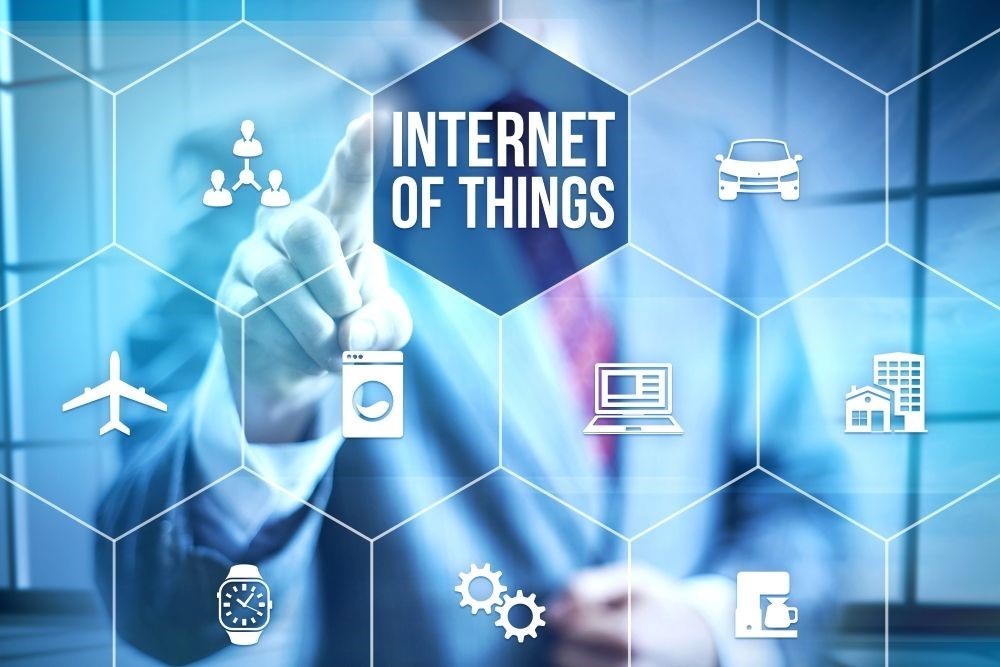
Blog
Understanding the Internet of Things
Internet of Things (IoT) devices are revolutionizing the world! According to a Gartner report, consumers will utilize over 13,000,000 IoT-based appliances by 2020.
But what are these IoT devices in the first place? Well, they are gadgets connected to the Internet; that's for sure. And they include various sensors (accelerometers, gyroscopes, temperature sensors, etc.) which can read the data that they're supposed to monitor, and then send the read information over the network without requiring our input and/or attention. So, IoT devices can communicate with computers and with other IoT devices over the web on their own.
This provides fantastic opportunities for people who are interested in sharing their data, while posing serious threats for individuals who don't want their IoT-based healthcare devices to be manipulated by hackers.
Let's focus on the positive aspects of this technology, shall we? A smart fridge which uses advanced technologies can determine if you ran out of milk, and then order the needed number of bottles online, without requiring your intervention. An IoT-based temperature sensor can work in conjunction with an intelligent app that's installed on your phone, thus helping keep all the rooms in your home at the ideal temperature.
IoT devices can also be controlled over the Internet; this means that you can utilize a smartphone to lock/unlock doors, turn on/off the lights in the entire home, and so on. Most of these devices utilize Bluetooth, Wi-Fi, Near-Field Communication (NFC) and Radio-frequency identification (RFID) technologies to communicate with their hosts, or with other IoT devices.
Companies utilize Internet of Things devices to improve public transportation services, for example. Hundreds of IoT cameras are spread throughout the city, tracking the number of vehicles and their speeds, and then a central system takes intelligent decisions that optimize traffic flow by adjusting the traffic lights' cycle lengths.
Car makers incorporate smart sensors in their vehicles, utilizing advanced applications to predict what parts may fail in the near future. And many of us utilize wearable gadgets that help us exercise better, monitor our health, sleep better, etc.
As you can see, IoT devices provide several advantages. They can help us make use of the available resources efficiently, and they minimize human intervention, helping us save us a lot of time.
However, Internet of Things gadgets have several disadvantages as well. The key issue is security, in my opinion; way too many companies choose to build IoT devices without doing everything in their power to secure the clients' data. In fact, most IoT developers choose to save the data in raw format because it is much easier to do so. However, this makes our data accessible to any person that can get access to our devices.
Not only that, but very few IoT manufacturers choose to audit their software regularly, and then fix the discovered security holes. So, employees may bring their Internet of Things devices to work, and then connect them to the local network, making it vulnerable to hacker attacks.
The lack of software updates is another serious issue, and it's one that won't be fixed anytime soon because the prices of most IoT devices are quite affordable, and manufacturers aren't interested in "wasting" their time, and thus diminish their profits by upgrading their older devices' software.
Lots of surveillance devices have been hacked, being used to spy on their owners and/or to launch devastating Distributed-Denial-of-Service (DDoS) attacks. And if a cyber criminal manages to get access to your smartphone, he will be able to take control over all the connected IoT devices as well. According to a recent Shared Assessments study, 92% of IoT users want more control over the data that is collected by their devices' manufacturers, and 90% of them want to be notified as soon as a security patch is available.
So, is there hope for a secure IoT future? Frankly, I couldn't say that I am very optimistic about that. Fortunately, a few companies have already created tight security procedures and standards such as User-Managed Access, which can help people have much a greater control over their personal data.